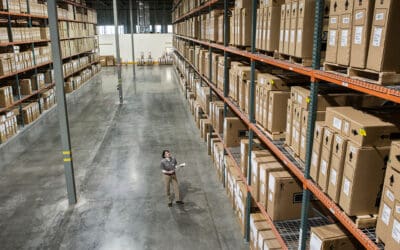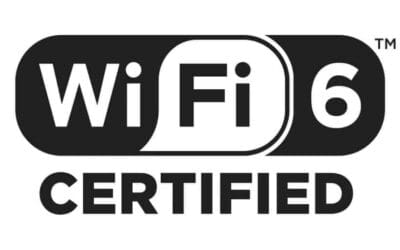RFID is everywhere, and healthcare is a big part of the growing trend. Healthcare companies are coming to understand how RFID helps all types of healthcare and pharmaceutical organizations identify, track, count, and manage materials, supplies, people, equipment, and just about anything else you can imagine.
With rising costs, reduced margins, and markets requiring faster responses, healthcare enterprises often have to do more with less. RFID revolutionizes healthcare. It boosts efficiency, replacing manual or tedious processes with the efficiency and accuracy of automated tracking, no matter how large or small the tracked object is.
Long-standing staffing shortages for registered nurses, technicians, and other healthcare professionals make it critical to automate for efficiency, but even more so for patient safety. Automating any tasks that do not require a skilled healthcare professional frees up time for what is important: the patient and the patient’s outcome.
RFID Healthcare Applications and Patient Safety
Maybe your challenge is better tracking equipment within the building, so medical personnel can find it when needed. But when you begin researching, you see so many other applications. What about tracking pharmaceuticals, ensuring the patient gets the correct procedure or drug, or tracking the patient through the surgical process?
The National Academy of Medicine estimates that 44,000 to 98,000 deaths per year are related to medical errors. Traceability is critical in our overtaxed healthcare facilities. It means flawlessly tracking the patient’s identity, drug administration and origin, and procedures. Manual tracking is slow and fraught with errors, but RFID tracking records every move in the chain of custody for medical tests, drugs, and procedures.
RFID Pharma Applications and Patient Safety
Patient safety in the pharmaceutical industry largely rests on the right patient getting the proper medication or procedure at the right time. It may seem simple, but with the number of medicines available, the volume, and supply chain considerations, it is not.
RFID healthcare solutions ameliorate multiple threats to the pharmaceutical supply chain that can threaten patient safety. From counterfeiting to inventory issues to temperature and expiration management, RFID ensures that each item is trackable and authenticated and that patients receive the necessary medication.
What Do Healthcare RFID Solutions do for Medical Facilities and Pharma?
Let’s explore how RFID in healthcare and pharma facilitates everything from inventory to shipment accuracy.
Automated Chain of Custody
Hospitals, laboratories, and pharmaceutical companies manage a massive volume of information, samples, equipment, and incoming and outgoing items, most of which are sensitive.
Privacy rules raise the stakes for healthcare companies and facilities that keep track of many small, sensitive items. Manual tracking is inherently flawed because it relies on human accuracy. In a medical environment, mistakes can be devastating, not only for the patient but also for the provider.
Properly configured RFID is ideal in a healthcare environment. When they arrive, RFID-tagged items, records, medicines, or people trigger an RFID antenna, registering their movements in the software. As the items pass other antennas, they register their whereabouts. In this way, each item creates a trail from end to end throughout its journey.
Inventory Management for Pharma and Hospitals
RFID enables you to see your exact inventory status. No more costly overorders or scrambling to replace missing products. With complete visibility into your inventory and a software system that readily informs you of product status, you can more easily manage inventory and costs.
RFID-enabled smart cabinets are an excellent technique for protecting sensitive materials, medications, and supplies in a medical facility. An RFID antenna installed in the cabinet records the movements of each tagged item without human interaction when it is put into or removed from the cabinet.
Pharma Product Verification and Real-Time Tracking
For pharmaceutical companies, RFID automates inventory, reduces counterfeiting, and aids compliance with government regulations. Global GS1 standards provide a common language worldwide for tracking and tracing pharmaceuticals, and compliance is critical at this stage in the industry.
For hospitals and other healthcare facilities, a properly configured RFID system records every touchpoint of a medication, piece of equipment, patient file, or patient. This kind of tracking vastly improves patient safety and service and protects providers.
Drug or Patient Sample Location and Rush Sample Expediting
Whether you use an in-house laboratory or send samples out for processing, RFID accurately tracks every sample. Manual tracking often breaks down under pressure and is fraught with errors, but RFID increases accuracy and tracks every sample as it enters and leaves your doors.
When you get a request for an expedited sample, instead of searching manually, you can locate the tagged sample and pull it out for special treatment as needed. RFID automatically records its exact location in your facility. This ability hugely improves customer service and patient outcomes.
Improved Shipment Accuracy
GS1 standards now recommend item-level tracking internationally. Standardized tagging lets you confirm shipment for every item you receive, where it came from, and where it’s going next. You can quickly determine if something is missing or shipped incorrectly. This kind of tight control also helps reduce counterfeiting and theft.
Proof of Quality Control
Quality control is paramount with the high volume of processes and procedures in medical facilities and patient safety at stake. When you track processes with RFID, you have a record of autoclave processing, sterilization, and work in progress.
Error Prevention and Real-Time Alerts
While human error is forgivable in many cases, healthcare errors that threaten human life and wellness are unacceptable. Every day, healthcare and pharma companies face the challenge of reducing errors where human lives are at stake.
As mentioned earlier, thousands of deaths each year are tied to medical errors. RFID tracking, with its ability to issue real-time alerts, tremendously aids in reducing risks, improving operational effectiveness, and tightening quality control. Its efficiency and accuracy improve outcomes in several areas:
- Patient tracking, monitoring, and safety
- Asset management
- Medical device tracking
- Product availability and inventory
- Theft and counterfeiting reduction
Patient Care and Experience
Anyone in a hospital environment knows about the Hospital Consumer Assessment of Healthcare Providers and Systems (HCAHPS). Since 2009, it has measured patient satisfaction in U.S. hospitals. More than 90 percent of eligible hospitals use the 29-question survey to evaluate patient experience within five days after their hospital stay.
The survey asks about doctor and nurse communication, staff responsiveness, medication communication, cleanliness, quietness, discharge information, and the transition to post-hospital care. Patients then rate the services they received.
When another patient is looking for a hospital in the Medicare.gov database and others, each entry features patient ratings, and many patients choose a facility based on the ratings. If patient experience improves with RFID implementation, it increases satisfaction and the likelihood that a patient will select your facility.
A Few Last Thoughts
The question is no longer whether to use RFID in a healthcare setting; it is a staple providing multiple benefits for all healthcare organizations. The question is how to implement it and what guidance you need to install an effective system that realizes the technology’s multiple benefits.
MSM Solutions deploys RFID solutions that effectively benefit every aspect of your organization. For decades, MSM has been providing comprehensive RFID services to healthcare organizations of all kinds, and we can help you. Contact us today to learn how RFID can help your organization work better.


